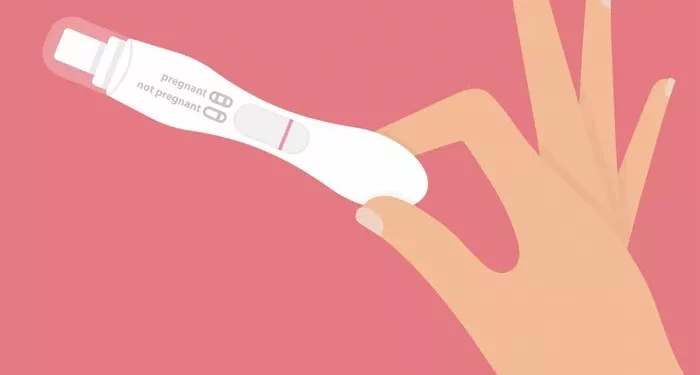Uterine fibroids, also known as leiomyomas or myomas, are non-cancerous growths of the uterus that often appear during childbearing years. These benign tumors are composed of smooth muscle cells and fibrous connective tissue. They can vary in size, number, and location within the uterine wall, and while some women may have fibroids without any symptoms, others might experience significant health issues.
The prevalence of uterine fibroids is quite high, affecting an estimated 20-80% of women by the age of 50. Although not all fibroids lead to complications, their presence can be a source of concern, especially when it comes to fertility. Understanding the relationship between fibroids and fertility is crucial for women who are planning to conceive.
Impact of Fibroids on Fertility
Sperm Travel and Meeting the Egg
The journey of sperm to the egg is a complex process that can be impeded by the presence of fibroids. Fibroids located within the uterine cavity (submucosal fibroids) or within the wall of the uterus (intramural fibroids) can alter the shape of the uterine cavity. This alteration can create an inhospitable environment for sperm travel, making it difficult for sperm to reach the egg. Additionally, fibroids can distort the cervix, affecting the passage of sperm from the vagina into the uterus.
Implantation of the Embryo in the Uterus
Once fertilization occurs, the embryo must implant into the lining of the uterus for pregnancy to be established. Fibroids, especially those that are submucosal, can interfere with this critical stage. They can cause changes in the uterine lining that make it less receptive to implantation. Furthermore, fibroids can alter the blood supply to the endometrium, which is essential for nourishing the embryo. As a result, the presence of fibroids can significantly reduce the chances of successful implantation.
Growth and Positioning of the Fetus
During pregnancy, the uterus expands to accommodate the growing fetus. Fibroids can complicate this process in several ways. Large fibroids or those that are strategically located can compete for space within the uterus, restricting fetal growth. They can also cause the fetus to adopt an abnormal position, such as breech (feet or buttocks first) or transverse (sideways), which can complicate delivery.
In some cases, fibroids can lead to preterm labor or contribute to other complications such as placental abruption, where the placenta detaches from the uterine wall before delivery. This can pose serious risks to both the mother and the fetus.
See also: When Does a Woman’s Fertility Start to Decline?
Role of Fibroid Size, Location, and Number
The impact of fibroids on fertility largely depends on their size, location, and number. Submucosal fibroids, which protrude into the uterine cavity, are most likely to cause fertility issues because they can distort the uterine lining and interfere with embryo implantation. Intramural fibroids, located within the uterine wall, can also affect fertility if they are large enough to distort the uterine cavity.
The number of fibroids also plays a role. Multiple fibroids can compound the issues mentioned above, making it more difficult for a woman to conceive and maintain a pregnancy. Conversely, small fibroids located on the outer surface of the uterus (subserosal fibroids) are less likely to impact fertility directly, though they can still contribute to overall uterine health issues.
Fertility with Fibroids
Natural Conception
Despite the potential challenges posed by fibroids, many women with these growths can and do conceive naturally. The degree to which fibroids affect fertility varies widely among individuals. Some women may experience no issues at all, while others might face significant obstacles. Therefore, it is crucial for women with fibroids who wish to conceive to seek medical advice to understand their specific situation.
Importance of Consulting a Doctor
A thorough evaluation by a healthcare professional can help determine the best course of action for women with fibroids who are trying to conceive. This evaluation may include imaging tests such as ultrasound or MRI to assess the size, location, and number of fibroids. Based on this assessment, doctors can provide personalized recommendations that may include monitoring, medical treatment, or surgical options.
For some women, lifestyle changes and medical management may be sufficient to improve their chances of conceiving. In other cases, surgical intervention to remove fibroids, such as myomectomy, may be recommended to enhance fertility. A myomectomy involves the surgical removal of fibroids while preserving the uterus, which can help restore normal uterine function and improve the chances of a successful pregnancy.
See also: Chickenpox and Infertility: What is the Link?
Tips & Resources
For more information on uterine fibroids and fertility, consider exploring the following credible sources:
1. Mayo Clinic
2. American College of Obstetricians and Gynecologists (ACOG)
3. National Institutes of Health (NIH)
4. Fertility and Sterility Journal
5. Society for Assisted Reproductive Technology (SART)
These resources offer detailed information on the diagnosis, management, and treatment of fibroids, as well as their impact on fertility and pregnancy outcomes. Consulting these sources can provide further insights and help women make informed decisions about their reproductive health.
Conclusion
Uterine fibroids are common and can impact fertility in various ways, including interfering with sperm travel, embryo implantation, and fetal growth and positioning. The extent to which fibroids affect fertility depends on their size, location, and number. While fibroids can present challenges, many women with fibroids can still conceive naturally.
A personalized approach is essential, and consulting a healthcare professional can provide valuable insights and guidance. Treatment options, such as medical management or surgical removal of fibroids, may improve fertility outcomes for some women. Ultimately, understanding the specific characteristics of fibroids and how they interact with individual fertility profiles is key to managing and overcoming these challenges.
Related Topics:
Uterine Fibroids and Fertility: What You Need to Know
Surgical Abortion and Its Impact on Fertility: A Full Guide
3 Treatment Options of Fallopian Tubes: Things You Need To Know



























